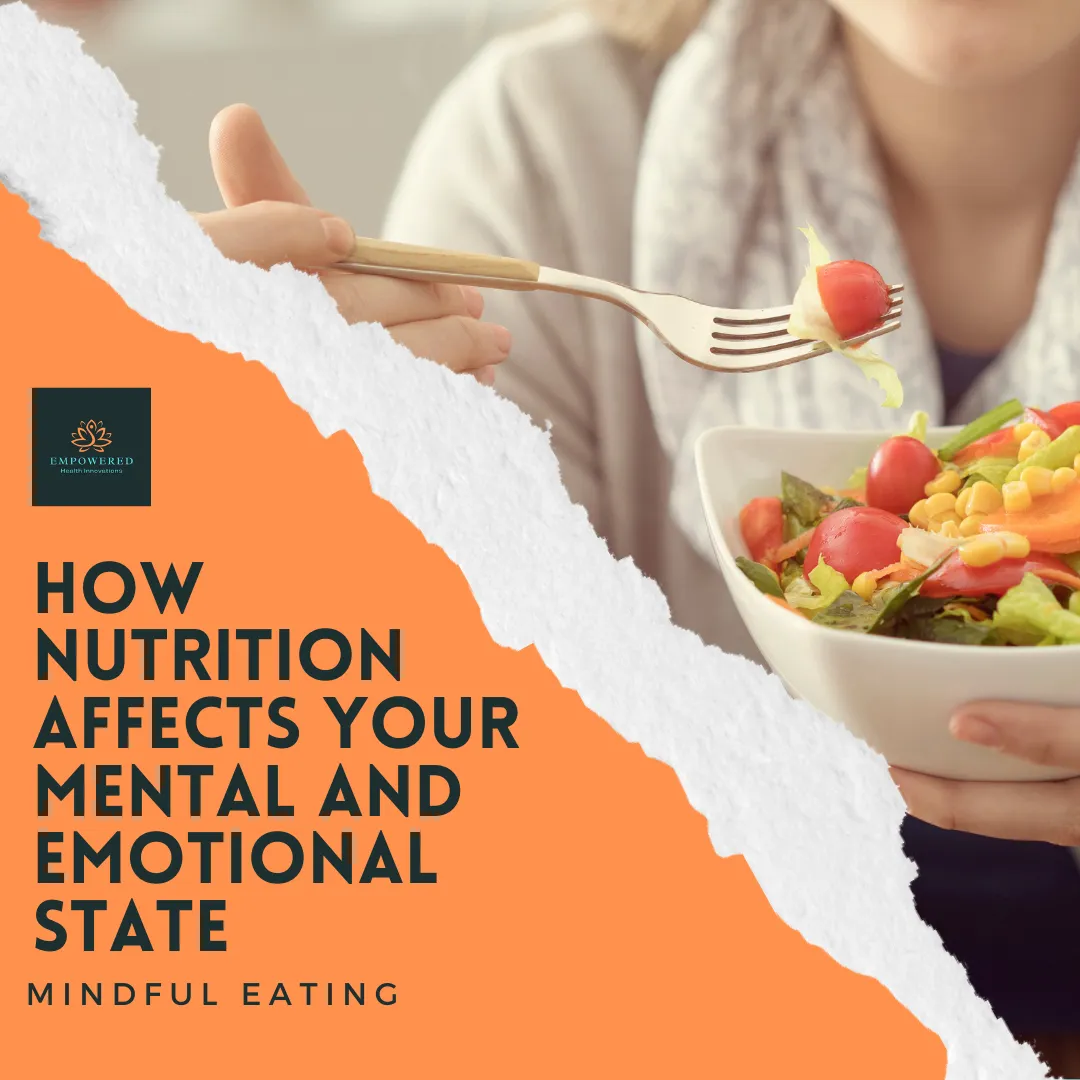
How Nutrition Affects Your Mental and Emotional State
How Nutrition Affects Your Mental and Emotional State
Nutrition plays a critical role in maintaining overall health, including mental and emotional well-being. The foods you consume can significantly impact brain function, mood, and mental health. Here’s how nutrition affects your mental and emotional state:
1. Brain Function and Cognitive Performance
The brain requires a constant supply of nutrients to function optimally. Certain foods can enhance cognitive performance and protect against cognitive decline:
Omega-3 Fatty Acids: Found in fatty fish, flaxseeds, and walnuts, omega-3s are essential for brain health. They help build cell membranes in the brain and have anti-inflammatory effects, which can improve cognitive function and reduce the risk of depression.
Antioxidants: Foods rich in antioxidants, such as berries, nuts, and dark chocolate, protect brain cells from oxidative stress and inflammation, which can enhance memory and learning.
B Vitamins: Vitamins like B6, B12, and folic acid, found in leafy greens, beans, and whole grains, support brain function by aiding in the production of neurotransmitters.
2. Mood Regulation
What you eat can influence your mood by affecting the production and regulation of neurotransmitters, the brain's chemical messengers:
Tryptophan: An amino acid found in turkey, eggs, and cheese, tryptophan is a precursor to serotonin, a neurotransmitter that regulates mood, sleep, and appetite. Higher levels of serotonin are associated with improved mood and feelings of well-being.
Magnesium: This mineral, present in nuts, seeds, and whole grains, helps regulate neurotransmitters that influence mood. Low magnesium levels are linked to an increased risk of depression and anxiety.
Complex Carbohydrates: Whole grains, fruits, and vegetables provide a steady supply of glucose to the brain. Consistent blood sugar levels can help stabilize mood and prevent irritability and fatigue.
3. Stress and Anxiety Management
Certain nutrients can help the body manage stress and reduce anxiety:
Vitamin C: Found in citrus fruits, strawberries, and bell peppers, vitamin C reduces cortisol levels, the hormone associated with stress. Adequate intake can help mitigate the physical and mental effects of stress.
Zinc: This mineral, abundant in meat, shellfish, and legumes, supports brain function and reduces symptoms of anxiety. Low zinc levels have been linked to increased anxiety and depression.
4. Gut-Brain Connection
The gut-brain axis is a complex communication network between the gastrointestinal tract and the brain. A healthy gut microbiome can positively influence mental health:
Probiotics: Foods like yogurt, kefir, and sauerkraut contain beneficial bacteria that promote a healthy gut. A balanced gut microbiome can reduce inflammation and enhance the production of neurotransmitters that improve mood.
Fiber: High-fiber foods such as fruits, vegetables, and whole grains support gut health by feeding beneficial bacteria. A healthy gut can reduce the risk of anxiety and depression.
5. Energy Levels and Mental Clarity
Proper nutrition ensures stable energy levels and mental clarity:
Iron: Essential for oxygen transport in the blood, iron is found in red meat, beans, and spinach. Adequate iron levels prevent fatigue and cognitive impairment.
Hydration: Staying hydrated is crucial for maintaining concentration and cognitive function. Dehydration can lead to confusion, irritability, and reduced mental performance.
Practical Tips for a Nutrient-Rich Diet
Balanced Diet: Include a variety of nutrient-dense foods in your diet to ensure you’re getting a broad spectrum of vitamins and minerals.
Regular Meals: Eat regular, balanced meals to maintain steady blood sugar levels and prevent mood swings.
Limit Processed Foods: Reduce the intake of processed and sugary foods that can cause blood sugar spikes and crashes, leading to mood fluctuations.
Healthy Fats: Incorporate healthy fats, such as those from avocados, nuts, and olive oil, to support brain health.
Stay Hydrated: Drink plenty of water throughout the day to maintain hydration and cognitive function.
Conclusion
Nutrition is a key factor in maintaining mental and emotional health. A balanced diet rich in essential nutrients can enhance brain function, regulate mood, manage stress, and improve overall well-being. By making mindful food choices, you can positively influence your mental and emotional state, leading to a healthier, happier life.